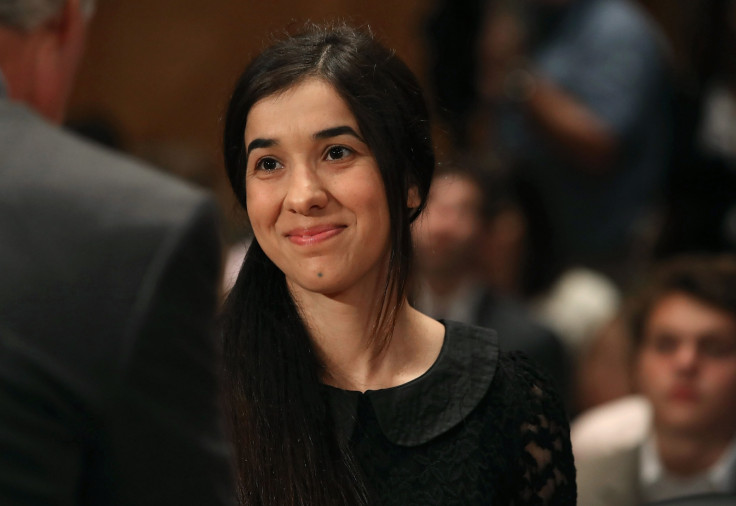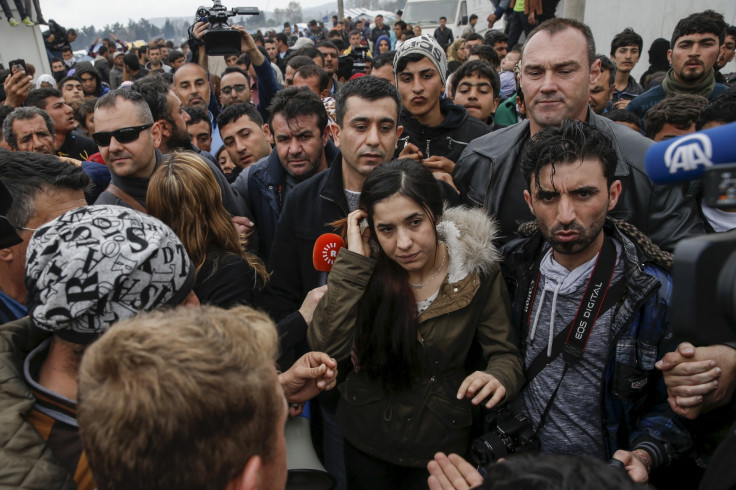Nadia Murad: The Yazidi woman who overcame Isis wins human rights prize
'I will go back to my life when women in captivity go back to their lives,' said Murad.

A Yazidi woman who overcame the Islamic State has been awarded the Vaclav Havel Human Rights Prize by the Council of Europe. Nadia Murad was kidnapped by Isis along with her siblings and their mother in northern Iraq more than two years ago.
They were subsequently separated and Murad was bought and sold several times by the militant group. She was beaten and subjected to gang-rape at the hands of Isis and forced to disavow her Yazidi faith, an ancient religion which the extremist group considers heretical.
"Under their rule, a captured woman becomes a spoils of war if she is caught trying to escape," the 23-year-old explained last month. "She is put in a cell and raped by all the men in that compound. I was gang-raped."
Murad's six brothers were murdered, but she managed to escape from the clutches of Isis. Murad fled to Germany and despite the trauma which she has endured, managed to focus international attention on the plight of the Yazidi community – the very feat for which she has been recognised.
"I will go back to my life when women in captivity go back to their lives, when my community has a place, when I see people accountable for their crimes," the survivor said in her acceptance speech in Strasbourg, France.

Isis' campaign against the Yazidis is a "genocide," Murad said. "They sought to force us to deny our religion, as they considered us to be non-believers. And they killed men and enslaved women, and abducted children in order to transform them into terrorists," she added.
Hundreds of Yazidi women and girls have managed to escape from Isis, but they are living in dire conditions "either with impoverished relatives who have been displaced from their homes, or in camps for internally displaced persons in the Kurdistan Region of Iraq," according to Amnesty International.
The human rights organisation said they are being failed by insufficient support from the international community and that many survivors are on the brink of suicide, driven by destitution, grief and fear.
Murad's award is accompanied by €60,000 (£54,000) in prize money.
© Copyright IBTimes 2024. All rights reserved.






